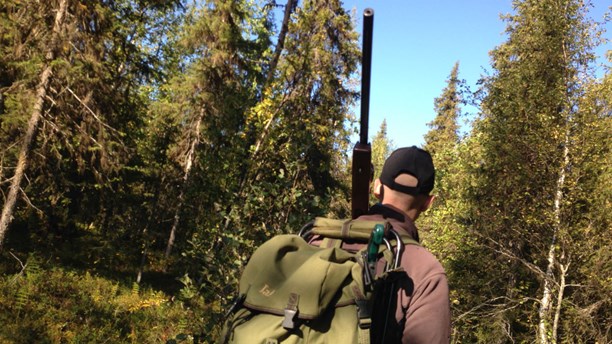Wild game source of lead for Swedish consumers

A new study in Sweden found that lead levels in people who eat wild game meat are higher than previously thought.
The report followed 74 families of hunters across the country who ate, at least twice a month, wild game meat that was shot. It found that people who eat a lot of game meat can have elevated levels of lead in their blood, more so than those who don’t eat the meat.
The metal is put there by the fragmentation of a hunter’s lead bullet and lead poisoning can lead to higher blood pressure and kidney problems for adults and lower IQs for children.
The in-depth study reinforces previous research but it also shed some new light on the problem.
“What’s new from this study is that we see very high levels of lead in an area that’s larger and further away from the actual bullet wound than we previously thought,” said Rickard Bjerselius, a toxicologist at the Swedish National Food Agency.
Will hunters switch to lead-free ammunition?
That has the agency changing its recommendations for butchering and preparing the game meat. It now says that flesh at least 10 centimeters away from the bullet wound should be removed. Bjerselius said if hunters cut away that meat they can reduce the lead content up to 1,000 times.
The heavy metal lead has long been a core ingredient of ammunition but there are lead-free alternatives.
Björn Sundgren with the Association for Hunting and Wildlife Management in northern Sweden says he believes the new findings will encourage more hunters to completely switch to lead-free ammunition.
“I myself have hunted with lead-free ammunition for a number of years now. The technology is developing so fast that, as it looks today, the lead-free ammunition is just as good as leaded ones,” he said.
Related stories from around the North:
Canada: New study to examine mercury in Arctic, Alaska Dispatch
Greenland: Researchers must be honest with Arctic peoples about food contaminants: doctor, Eye on the Arctic
Norway: Norway’s radioactive reindeer, Barents Observer
Russia: Is mercury harming foxes in the Russian Arctic?, Eye on the Arctic
United States: Shift from traditional foods takes toll on Alaska Native populations, Alaska Dispatch



